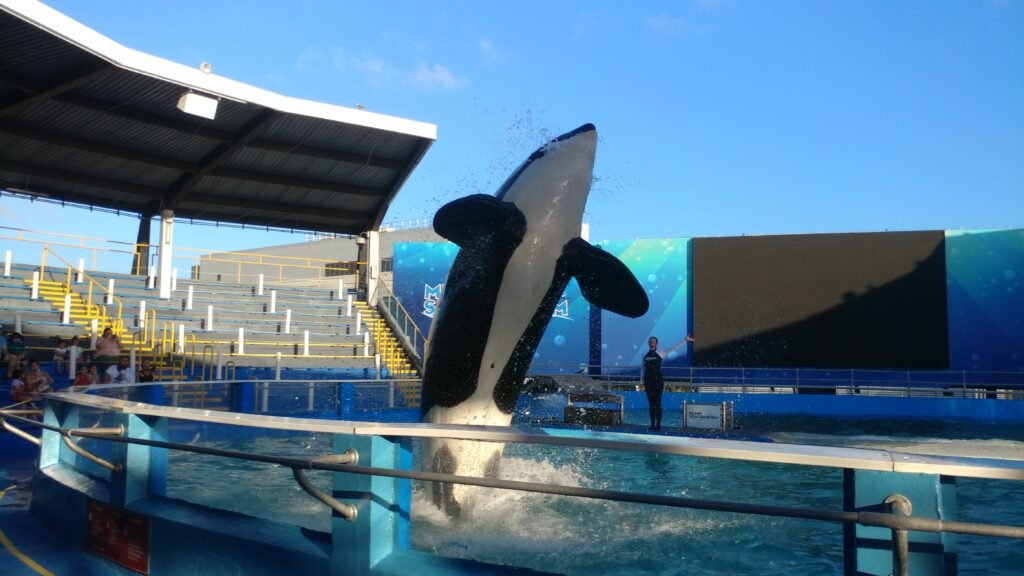Planning is now underway to return Lolita, aka Tokitae, aka Sk’aliCh’elh-tenaut, from the Miami Seaquarium to her home waters in the Pacific Northwest. On March 30 The Dolphin Company, owner of the Seaquarium, along with the non-profit Friends of Toki, who have dramatically improved her water quality, joined by philanthropist Jim Irsay, announced a signed agreement to work together toward retiring Toki in her native habitat, where she was born and taught how to be an orca by her mother and family.
The announcement stirred up a torrent of opposition, led by current and former marine park employees. The ensuing controversy illustrates two different ways of looking at Toki. Industry representatives who know her as a trained performer have been saying for years that Toki is too old or too weak or habituated to even survive the trip, and if she did arrive safely she wouldn’t survive long in ocean waters, and that she could pose a disease risk to wild orcas.
Many others are aware of Toki’s formative years as a Southern Resident orca, her remarkable good health, her midlife age in relation to females in her family, and the protocols that will ensure that she’s free of pathogens and her immune system is healthy.
Those who believe Toki is weak or even geriatric can’t imagine that she could be transported to a seapen in an ocean habitat, and if that should happen they shudder at the suggestion that she ever be allowed to leave the seapen. Those who see her as a healthy mature adult with decades of life before her believe that after re-acclimating to her native waters and regaining her strength and stamina, she should be fitted with a small radio tag and allowed to leave the seapen, accompanied by human companions in a boat equipped with a recall signal and a freezer full of salmon.
All parties know that NOAA will need to approve and supervise Tokitae’s return to her native habitat in the Salish Sea, but it is not known how permitting agents see this whale. It is their responsibility to review any concerns. Fortunately all the expressed worries can and will be addressed.
It’s easy to imagine scary outcomes when there’s a powerful lobby spreading them into the public to prevent the successful return of any captive whale or dolphin. But there are proven solutions to those concerns. If people looked realistically at Keiko’s experience we would learn that those same fears were raised and were resolved by a panel of six veterinarians and pathologists who examined him before he went to Iceland. That team was led by Dr. Jim McBain, who is now Toki’s head veterinarian. They declared him free of pathogens and when Keiko touched down in Iceland he thrived immediately and became even stronger, eventually swimming across the Atlantic while catching his fill of fish the entire way.
The lessons for Toki are that the disease issue is manageable and not scary, and that she’ll thrive in her native habitat. The fears that say she should never leave that dismal tank in Miami, or ever venture out of her pen in her native waters, are based on misinformation, which is rampant and much harder to manage.
Below is the examination report that gave Keiko a clean bill of health in 1998.

